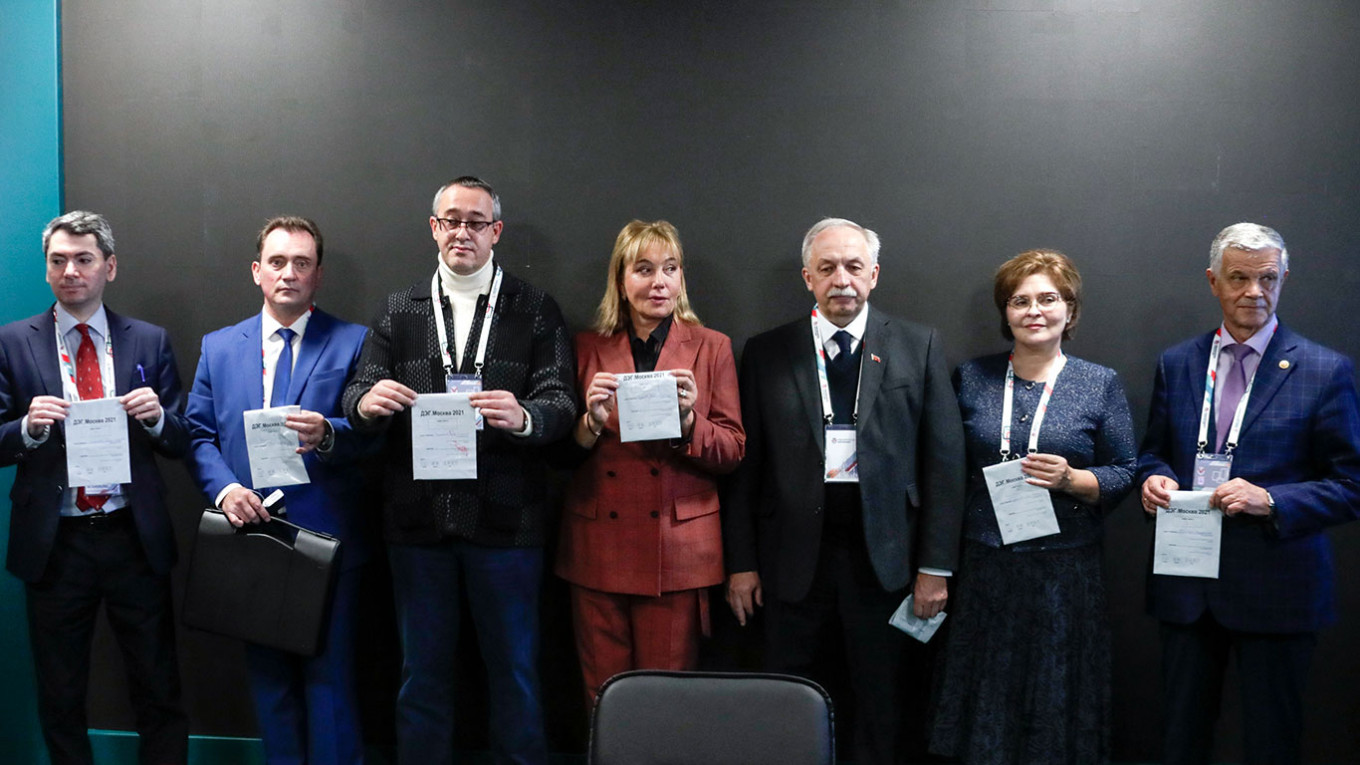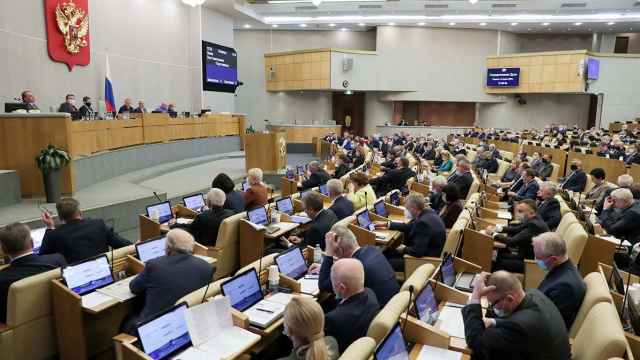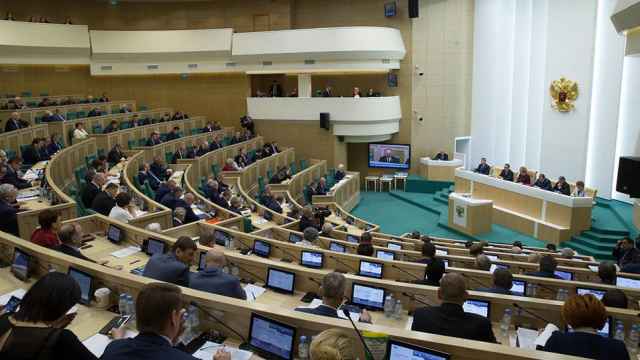Golos, an independent vote-monitoring movement, was named a “foreign agent” by Russia’s Justice Ministry in August after receiving a $3 contribution from an Armenian citizen, the movement's co-chairman Grigory Melkonyants said on Facebook.
A Russian court denied Golos’ challenge against being designated a “foreign agent,” explaining that the grounds for the vote-monitoring organization being added to list was two transfers of “about 200 rubles” ($2.80) from a citizen of ex-Soviet republic Armenia, Melkonyants said.
The Russian Justice Ministry included Golos, a local organization that observes elections, in its list of “foreign agents” just weeks before September’s parliamentary elections in a move widely decried as a ploy to frustrate their efforts to monitor and report on election fraud.
Created in 2000, Golos had notably denounced election rigging in the 2011 parliamentary election and the 2012 presidential vote which saw President Vladimir Putin return to the Kremlin.
“Despite the lack of evidence, the court dismissed our claim. We will appeal,” Melkonyants said in a post.
Melkonyants disputed the Justice Ministry’s claims, and said that the movement did not even have a bank account where the transfer could be sent to. He added that he was “discouraged by the lack of evidence and supporting documents” that the Justice Ministry used as grounds for the “foreign agent” label.
The development mirrors other incidents of organizations being designated “foreign agents” after having received small donations from foreign citizens or people living in other countries. Last year, the League of Voters non-profit was added to Russia’s “foreign agent” registry after receiving a transfer of 225 rubles ($3.20) from a Molodvan citizen.
Kremlin critics say authorities are using the “foreign agents” law to silence opposition voices and independent media. News organizations, NGOs and individuals which are added to the registry must follow rigorous financial reporting requirements and attach a 24-word foreign agent disclaimer to every publication, including social media posts.
A Message from The Moscow Times:
Dear readers,
We are facing unprecedented challenges. Russia's Prosecutor General's Office has designated The Moscow Times as an "undesirable" organization, criminalizing our work and putting our staff at risk of prosecution. This follows our earlier unjust labeling as a "foreign agent."
These actions are direct attempts to silence independent journalism in Russia. The authorities claim our work "discredits the decisions of the Russian leadership." We see things differently: we strive to provide accurate, unbiased reporting on Russia.
We, the journalists of The Moscow Times, refuse to be silenced. But to continue our work, we need your help.
Your support, no matter how small, makes a world of difference. If you can, please support us monthly starting from just $2. It's quick to set up, and every contribution makes a significant impact.
By supporting The Moscow Times, you're defending open, independent journalism in the face of repression. Thank you for standing with us.
Remind me later.






